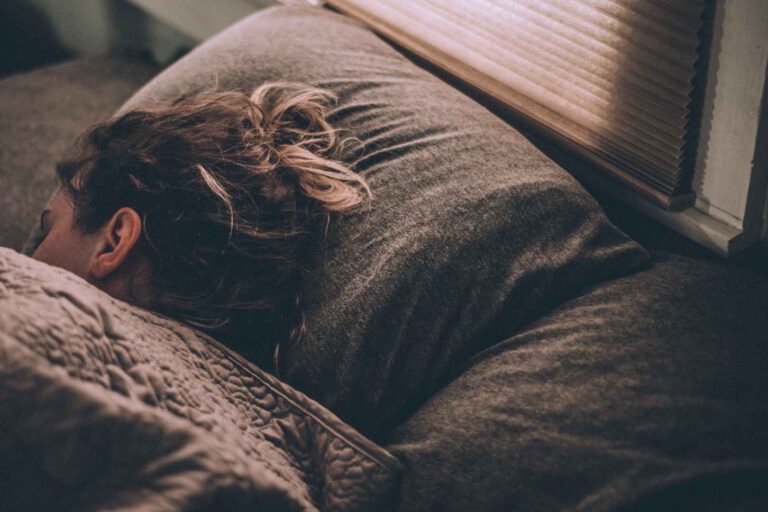Contents:
Everyone knows that sleep is important and that its disturbances negatively impact our health and daily functioning. Difficulty falling asleep, insufficient sleep, and poor sleep quality lead to overwork, a lack of resilience to stress, and, as a result, an even greater susceptibility to various types of illnesses.
It is believed that an adult, on average, needs at least 7 to 9 hours of uninterrupted, deep sleep to function properly and fully recover. But unfortunately, the reality is often quite different. In today's world, there are many "distractions" that can completely disrupt sleep. Everyday stress, hectic schedules, problems at work, disturbing news from around the world, the ongoing epidemic, caring for children, and long hours in front of computer, laptop, television, and smartphone screens - all this makes it really difficult for us to calm down and fall asleep peacefully. The next day, we wake up drowsy and tired, and the vicious cycle is complete. How do you deal with problems falling asleep and what can you do to enjoy healthy, restful, and regenerating sleep again?
Natural ways to sleep well
Lack of sleep leads to greater susceptibility to stress, anxiety, and depression, diseases such as diabetes, heart failure, concentration and memory problems, and hormone imbalances, and can even lead to obesity. To sleep better, we need to follow some important, seemingly simple rules. We may know some of them, but in the hustle and bustle of daily life, it's easy to forget them.
- Ventilated bedroom and appropriate temperature – we mustn't forget to ventilate the room we sleep in. Don't turn the radiators up to the highest setting, because sleep is healthier at lower temperatures, below 21 degrees Celsius.
- Routine and evening rituals – our bodies fall asleep faster when we set a fixed bedtime. We shouldn't go to bed around 10:00 p.m. and then three hours later the next day. Routine is key in this case. Our bodies easily get used to a fixed time, which makes it easier for us to fall asleep.
- A comfortable mattress and pleasant bedroom furnishings – it becomes difficult to sleep when our backs hurt from lying on an uncomfortable mattress, we can't find a comfortable sleeping position, the bedding feels uncomfortable, and there's a distracting mess around us. All of these details are truly important. The bedroom should be an oasis of calm, a place of peace, which is also supported by its visual presentation.
- No TV or computer in the bedroom - and don't check your phone every now and then before going to bed. Firstly, these devices emit blue light, which, unlike natural light, can lead to sleep disturbances and trouble falling asleep. Adequately darkening the bedroom is crucial, as melatonin, the so-called sleep hormone, is only released after dark. About two hours before going to bed, we should turn off the overhead source of light and leave only mood lighting. Placing LED lights or indicator lights on electronic devices in the bedroom is also not recommended. Secondly, checking your phone or computer, as well as checking emails and not always positive news from around the world, just before going to bed can lead to unnecessary mental racing instead of the much-needed calm.
- Avoid stimulants like coffee or alcohol. The stimulating power of coffee is widely known, yet we often think that a glass of red wine before bed can have a relaxing and drowsy effect on us. However, this is partly a misconception, because even though we initially feel drowsy, any amount of alcohol impairs the quality of our sleep. We may fall asleep faster, but our sleep will be shallow, restless, and not very restorative.
- Relaxation before bedtime – in the evening, we should avoid strenuous exercise at the gym or stimulating aerobics. The body will be tired, but also stimulated. Leaving the wake-up exercises for the morning, and in the evening, a calming, relaxing walk, gentle stretching exercises, yoga nidra, and evening meditation will be more effective.
- Relaxing essential oils – Aromatherapy, known for thousands of years, is a simple and effective method for calming the nerves and senses. Oils with calming effects include lavender, sage , orange and mandarin orange, bergamot , geranium, and sandalwood. The most important thing is to choose the scent that we like and that best suits our preferences.
This ensures healthy, deep and regular sleep
Sleep not only allows us to regenerate after a long, strenuous day, but also influences the quality of our daily functioning. If it is long and deep enough, it enables physical and mental regeneration, improves learning, memory, and concentration, as well as information processing. It influences the regulation of hormone levels, the sense of hunger, and the proper perception of temperature—with a lack of sleep, we experience a greater sensation of cold. Regular, deep sleep contributes to maintaining physical and mental health and influences our daily well-being.
THE PUBLISHER'S CHOICE
Dried dates 1 kg BIOGO
- €4,21
€4,95- €4,21
- Unit price
- / per
Peeled sunflower seeds 1 kg BIOGO
- €3,04
€3,57- €3,04
- Unit price
- / per
Dried organic mango 400 g BIOGO
- €10,99
- €10,99
- Unit price
- / per
Dried White Mulberries 500 g ORGANIC
- €5,84
€6,87- €5,84
- Unit price
- / per
Organic Ground Turmeric 500 g BIOGO
- €5,92
- €5,92
- Unit price
- / per
Oat flakes 800 g BIOGO
- €2,34
€2,76- €2,34
- Unit price
- / per
Milk thistle seeds 1 kg BIOGO
- €3,99
- €3,99
- Unit price
- / per
Popcorn (corn kernels) organic 1 kg BIOGO
- €5,84
- €5,84
- Unit price
- / per
Organic cashew nuts 1 kg BIOGO
- €19,99
- €19,99
- Unit price
- / per
Unpeeled buckwheat groats 1 kg BIOGO
- €2,81
€3,31- €2,81
- Unit price
- / per







































































































































